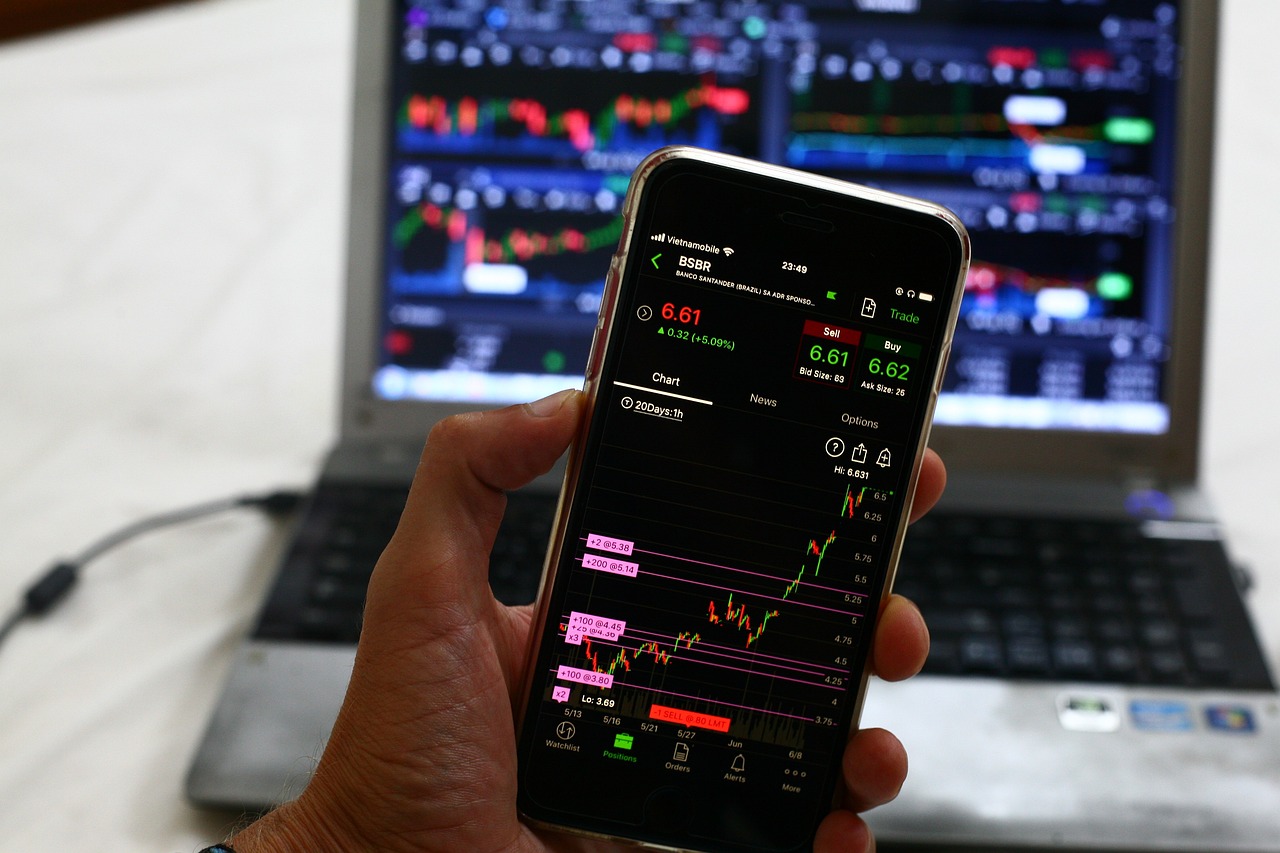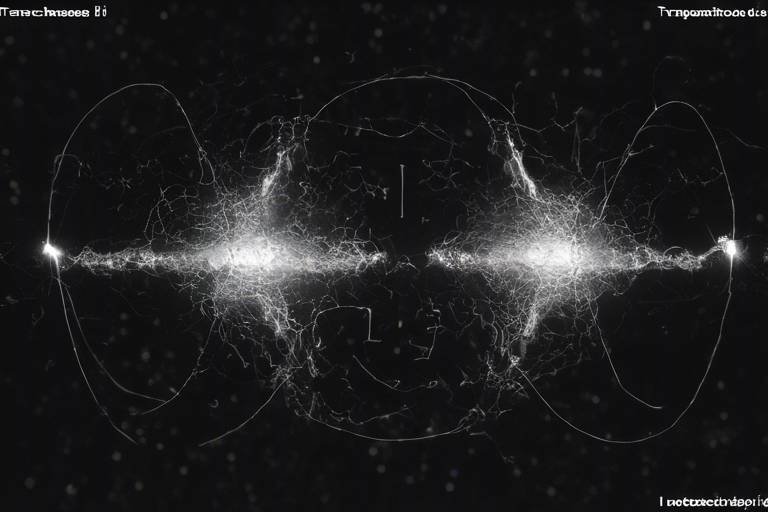Nexus Mutual - Decentralized Insurance Insights
In a world where traditional insurance models often leave consumers feeling frustrated and underserved, Nexus Mutual emerges as a beacon of innovation. This decentralized insurance platform harnesses the power of blockchain technology to create a more transparent, efficient, and community-driven approach to insurance. Imagine a system where you, the policyholder, have a say in how your insurance operates, where claims are processed swiftly and fairly, and where trust is built not on promises but on code. Welcome to the revolutionary realm of Nexus Mutual, where the future of insurance is being redefined.
Nexus Mutual is not just another insurance company; it’s a decentralized autonomous organization (DAO) that empowers its members to take control of their insurance needs. By leveraging the principles of blockchain, Nexus Mutual eliminates the need for intermediaries, allowing for direct interaction between members. This innovation reshapes the insurance landscape, fostering a sense of community and collaboration that traditional providers simply cannot match. But what does this mean for you, the consumer? It means more choices, lower costs, and a system designed to work for you, not against you.
As we dive deeper into the workings of Nexus Mutual, we’ll explore the benefits it offers, the challenges it faces, and the exciting future that lies ahead. Whether you're a seasoned crypto enthusiast or just dipping your toes into the world of decentralized finance, understanding Nexus Mutual is essential. So, let’s embark on this journey together and uncover the transformative potential of decentralized insurance!

Understanding Nexus Mutual
Nexus Mutual operates on a unique model that leverages blockchain technology to provide insurance services, fundamentally reshaping how we perceive and engage with insurance. Unlike traditional insurance companies that rely on centralized systems and bureaucratic processes, Nexus Mutual offers a decentralized platform where members can directly participate in the insurance process. Imagine a world where you are not just a policyholder but also a stakeholder, actively contributing to the decisions that affect your coverage and claims. This is the essence of Nexus Mutual.
At its core, Nexus Mutual functions as a mutual insurance organization. This means that members pool their resources together to share risks. When a member needs to make a claim, the funds come from this pooled resource rather than a corporate profit margin. This model fosters a sense of community and trust, as members are incentivized to act in the best interests of one another. It’s a bit like a neighborhood watch program, where everyone looks out for each other, ensuring that everyone remains safe and secure.
One of the standout features of Nexus Mutual is its use of smart contracts. These are self-executing contracts with the terms of the agreement directly written into code. This technology automates many processes that would typically require human intervention, reducing the potential for fraud and increasing efficiency. For instance, when a claim is made, the smart contract verifies the conditions and triggers the payout if everything checks out. This level of automation not only speeds up the claims process but also enhances transparency, allowing members to see exactly how their claims are handled.
Furthermore, Nexus Mutual differentiates itself through its community-driven governance. Members have the power to vote on key decisions, such as changes in policy terms or how the mutual fund is managed. This democratic approach ensures that the platform evolves in a way that reflects the needs and desires of its users. Think of it as a cooperative where every member has a voice, making the platform not just a service provider but a community of engaged individuals.
In summary, Nexus Mutual is not just another insurance platform; it represents a shift towards a more inclusive, transparent, and community-oriented approach to insurance. By harnessing the power of blockchain technology, smart contracts, and member governance, Nexus Mutual is paving the way for a new era in the insurance industry. As we continue to explore its benefits and challenges, it becomes evident that this decentralized model holds great promise for the future of insurance.

Benefits of Decentralized Insurance
Decentralized insurance is revolutionizing the way we think about risk management and coverage. Unlike traditional insurance models, which often involve layers of bureaucracy and profit-driven motives, decentralized insurance platforms like Nexus Mutual offer a refreshing alternative. One of the most significant benefits is transparency. In a decentralized system, all transactions and claims are recorded on the blockchain, making it nearly impossible to manipulate data. This level of transparency fosters trust among policyholders, who can see exactly how their premiums are being used.
Another compelling advantage is the potential for lower costs. Traditional insurance companies typically have high overhead costs associated with staffing, marketing, and administrative expenses. By eliminating these intermediaries, decentralized insurance can pass on savings to its members. Imagine paying a fraction of the cost for your insurance while still receiving comprehensive coverage! This is not just a dream; it's becoming a reality with platforms like Nexus Mutual.
Additionally, decentralized insurance promotes community-driven governance. Members of Nexus Mutual have a say in how the platform operates, from voting on important decisions to participating in the claims assessment process. This democratic approach ensures that the interests of the community are prioritized over corporate profits. It’s like being part of a cooperative where every voice matters. This active participation can lead to more tailored insurance products that meet the unique needs of the community.
Moreover, decentralized insurance has the potential to provide coverage to those who are often overlooked by traditional insurers. Many individuals and small businesses face challenges in obtaining insurance due to pre-existing conditions or insufficient credit histories. Decentralized platforms can offer innovative solutions, allowing these individuals to access coverage that was previously out of reach. This inclusivity is vital as it opens the door to a broader range of policyholders, ultimately creating a more resilient insurance ecosystem.
In essence, the benefits of decentralized insurance are vast and varied. From transparency and cost savings to community governance and inclusivity, it’s clear that this innovative approach is reshaping the insurance landscape. As we continue to explore the capabilities of platforms like Nexus Mutual, it’s exciting to think about how these advancements will empower individuals and transform the way we protect ourselves against unforeseen risks.
- What is decentralized insurance? Decentralized insurance is a model that leverages blockchain technology to provide insurance services without traditional intermediaries.
- How does Nexus Mutual differ from traditional insurance companies? Nexus Mutual operates on a community-driven model that prioritizes transparency, lower costs, and member governance.
- Can anyone join Nexus Mutual? Yes, anyone can join Nexus Mutual and participate in its offerings, as long as they meet the platform's requirements.
- What are the risks associated with decentralized insurance? While there are many benefits, risks include regulatory scrutiny, market volatility, and potential technological vulnerabilities.

How Nexus Mutual Works
Nexus Mutual operates on the principles of decentralization and community involvement, revolutionizing the way insurance is perceived and delivered. At its core, the platform utilizes smart contracts to automate the entire insurance process, from policy issuance to claims handling. This means that instead of relying on a traditional insurance company with a myriad of bureaucratic processes, members of Nexus Mutual can interact directly with the system, ensuring a more streamlined and efficient experience.
When a user wants to purchase coverage, they can easily do so by contributing to a shared pool of funds. This pool is what provides the capital for claims when they arise. The beauty of this model lies in its transparency; every transaction is recorded on the blockchain, allowing members to see exactly how funds are being managed and used. In essence, the community is both the insurer and the insured, which fosters a sense of trust and accountability that is often missing in traditional insurance models.
Claims processing in Nexus Mutual is another area where the platform shines. When a claim is filed, it is assessed by a group of members who act as claim assessors. This decentralized approach to claims assessment minimizes the chances of fraud and ensures that decisions are made fairly and transparently. The use of smart contracts means that once a claim is approved, payouts can be made swiftly, eliminating the long waiting periods that are typical in conventional insurance environments.
To illustrate how Nexus Mutual operates, consider the following table that highlights the key components of its working model:
| Component | Description |
|---|---|
| Smart Contracts | Automate the insurance process, ensuring efficiency and transparency. |
| Community Pool | A shared fund contributed by members to cover claims. |
| Claims Assessors | Members who evaluate claims to ensure fairness and reduce fraud. |
| Blockchain Transparency | All transactions are recorded on the blockchain for public access and trust. |
In addition to these elements, Nexus Mutual also encourages its members to participate in governance decisions, allowing them to vote on critical issues such as coverage terms and the introduction of new products. This participatory model not only empowers users but also aligns the interests of the platform with those of its community, creating a symbiotic relationship that is beneficial for all parties involved.
In summary, Nexus Mutual operates through a combination of innovative technology and community-driven principles. By leveraging smart contracts and a decentralized governance model, the platform is able to offer a unique insurance experience that prioritizes transparency, efficiency, and fairness. As the world continues to embrace blockchain technology, Nexus Mutual stands at the forefront of this transformation, paving the way for a new era in the insurance industry.
- What is Nexus Mutual? Nexus Mutual is a decentralized insurance platform that uses blockchain technology to provide insurance services.
- How does the claims process work? Claims are assessed by community members, ensuring transparency and fairness, with payouts executed via smart contracts.
- What are smart contracts? Smart contracts are self-executing contracts with the terms of the agreement directly written into code, automating processes.
- Can anyone join Nexus Mutual? Yes, anyone can join and participate in the platform by purchasing coverage and contributing to the community pool.

Tokenomics of Nexus Mutual
The tokenomics of Nexus Mutual is a fascinating aspect that underpins its decentralized insurance model. At its core, the economic framework is designed to ensure sustainability, incentivize participation, and facilitate governance. The native token, known as NXM, plays a pivotal role in this ecosystem. Holders of NXM tokens can participate in governance decisions, allowing them to influence the direction of the platform. This is a significant shift from traditional insurance models, where decisions are often made by a select few, leaving policyholders with little say.
One of the standout features of Nexus Mutual's tokenomics is its emphasis on risk-sharing. Members can pool their funds to cover potential claims, which not only lowers individual risk but also aligns the interests of the community. The more members contribute, the stronger the collective coverage becomes. This decentralized approach fosters a sense of community and trust, as everyone has a vested interest in the success of the platform.
In terms of incentives, Nexus Mutual employs a unique mechanism where members can earn rewards for participating in the network. This includes staking their NXM tokens, which helps to secure the platform and provides liquidity. As the network grows, so does the potential for token value appreciation, creating a win-win situation for participants. The following table summarizes the key components of Nexus Mutual's tokenomics:
| Component | Description |
|---|---|
| Native Token (NXM) | Used for governance and staking within the ecosystem. |
| Risk Pooling | Members pool funds to cover claims, reducing individual risk. |
| Incentives | Rewards for staking and participating in the governance process. |
| Value Appreciation | Potential for increased token value as the network expands. |
Moreover, the governance model is structured to encourage active participation from all members. Token holders can propose changes, vote on important decisions, and influence the overall strategy of Nexus Mutual. This democratic approach not only empowers users but also ensures that the platform evolves in a way that truly reflects the needs and desires of its community.
However, it’s important to note that while the tokenomics of Nexus Mutual offers many advantages, it also comes with inherent risks. Market volatility can impact the value of NXM tokens, and regulatory changes could pose challenges to the platform's operations. Therefore, potential users should be aware of these factors when engaging with Nexus Mutual.
In conclusion, the tokenomics of Nexus Mutual is a robust framework that supports its mission to provide decentralized insurance. By leveraging the power of blockchain technology and community governance, Nexus Mutual is not just reshaping insurance; it’s creating a new paradigm where members are at the forefront of decision-making and risk management.
- What is NXM? NXM is the native token of Nexus Mutual used for governance, staking, and rewards.
- How does risk pooling work? Members pool their funds to cover potential claims, reducing individual risk.
- Can I participate in governance? Yes, NXM token holders can propose and vote on decisions affecting the platform.
- What are the risks associated with NXM? Market volatility and regulatory changes are potential risks to consider.

Claims Process in Nexus Mutual
The claims process in Nexus Mutual is designed to be as transparent and efficient as possible, ensuring that members feel secure and confident when they need to make a claim. Unlike traditional insurance companies, where claims can often feel like a maze of red tape, Nexus Mutual leverages the power of blockchain technology to streamline this experience. So, how does it all work? Let’s break it down!
First and foremost, when a member believes they have a valid claim, they initiate the process by submitting a claim on the Nexus Mutual platform. This is typically done through a user-friendly interface that guides them through the necessary steps. The claim submission includes essential details such as the nature of the incident, the amount being claimed, and any supporting documentation. Think of it as filing a report on a platform designed specifically for your needs, rather than dealing with a faceless corporation.
Once the claim is submitted, it is reviewed by the community members who act as claim assessors. This unique aspect of Nexus Mutual is what truly sets it apart. Instead of a single claims adjuster making decisions behind closed doors, the community collectively evaluates the claim. This process not only fosters a sense of trust but also ensures that decisions are made fairly. Members can discuss and debate the merits of the claim, creating a collaborative environment where everyone’s voice matters.
After the community has assessed the claim, a decision is reached. If approved, the payout is facilitated through smart contracts. These contracts automatically execute the payment, ensuring that the process is not only swift but also secure. The use of smart contracts minimizes the risk of fraud and errors, making the claims process much more reliable than traditional methods. In fact, the entire process—from claim submission to payout—can often be completed in a matter of days, rather than weeks or months. Isn’t that refreshing?
However, it's essential to understand that while the community-driven model has numerous benefits, it also requires active participation from members. A healthy ecosystem depends on engaged and informed members who are willing to contribute to the claims assessment process. This means that the more you participate, the better the system works for everyone. It’s a classic case of "you get what you give." The more effort you put into the community, the more robust and effective it becomes.
To summarize, the claims process in Nexus Mutual is a revolutionary approach to insurance claims. By utilizing community governance and smart contracts, it not only enhances transparency but also empowers members. Here’s a quick overview of the claims process:
| Step | Description |
|---|---|
| 1. Claim Submission | Members submit claims through the platform with relevant details and documentation. |
| 2. Community Review | Fellow members assess the claim, discussing its merits and making a collective decision. |
| 3. Smart Contract Execution | Upon approval, the payout is automatically executed through smart contracts. |
In conclusion, Nexus Mutual’s claims process represents a significant shift in how insurance can function in a decentralized world. With community involvement at its core, it not only democratizes the claims process but also builds a more trustworthy and efficient insurance ecosystem.
- How long does the claims process take? The entire process can often be completed within days, depending on community engagement.
- Who assesses the claims? Claims are assessed by community members who participate in the decision-making process.
- What happens if my claim is denied? Members can appeal the decision, and the community can re-evaluate the claim based on new information or discussions.

Risks and Challenges
While Nexus Mutual opens the door to a revolutionary approach in the insurance industry, it is not without its . The landscape of decentralized insurance is still evolving, and with this evolution comes a plethora of uncertainties that both users and the platform must navigate. One of the most pressing concerns is regulatory scrutiny. As governments around the world grapple with how to regulate blockchain technologies, decentralized platforms like Nexus Mutual may find themselves in a legal gray area, potentially impacting their operations and the trust of their user base.
Another significant challenge is market volatility. The value of cryptocurrencies can fluctuate wildly, which may affect the pricing of insurance products and the overall sustainability of the platform. For instance, if the value of the native tokens drops sharply, it could lead to insufficient funds to cover claims, leaving policyholders vulnerable. This volatility can create a hesitance among potential users who are wary of investing in a system that may not provide the stability they expect from traditional insurance providers.
Additionally, security risks are inherent in any blockchain-based system. Despite the robust measures that Nexus Mutual employs to secure its platform, the risk of hacks and exploits cannot be entirely eliminated. Users must remain vigilant about their own security practices, as the decentralized nature of the platform means that there is often no central authority to turn to for recourse in the event of a breach.
Moreover, the complexity of the technology can be daunting for new users. Understanding how to navigate the platform, utilize smart contracts, and participate in governance can be overwhelming, especially for those who are not tech-savvy. This complexity can lead to a steep learning curve, potentially discouraging participation and adoption.
In summary, while Nexus Mutual offers a promising alternative to traditional insurance, it is crucial for users to be aware of these risks and challenges. By understanding the landscape, users can make informed decisions about their participation in this innovative platform. The journey towards decentralized insurance is exciting, but it requires a careful approach to mitigate potential pitfalls.
- What are the main risks associated with Nexus Mutual? The main risks include regulatory scrutiny, market volatility, security risks, and the complexity of the technology.
- How does market volatility affect decentralized insurance? Market volatility can impact the pricing of insurance products and the sustainability of the platform, potentially leaving policyholders vulnerable.
- What security measures does Nexus Mutual employ? Nexus Mutual uses robust security protocols, but users must also take personal responsibility for their security practices.
- Is it difficult to use Nexus Mutual? While it can be complex for new users, there are resources available to help navigate the platform.

Community Governance
Nexus Mutual stands out in the world of decentralized insurance not just for its innovative approach to providing coverage, but also for its commitment to . In traditional insurance models, decisions are often made by a select few at the top of the hierarchy, leaving policyholders with little say in the matters that affect them. However, Nexus Mutual flips this paradigm on its head. Here, the community is at the heart of decision-making, allowing members to actively participate in shaping the platform's future.
This governance model is facilitated through a system of token-based voting, where members can propose changes, vote on important issues, and influence the direction of the platform. Each member's voting power is typically proportional to the number of tokens they hold, ensuring that those who have a greater stake in the system have a more significant voice. This not only encourages engagement but also fosters a sense of ownership among the members.
One of the key components of community governance is the ability to propose new features or changes to existing policies. For instance, if a member identifies a potential improvement to the claims process or suggests a new type of coverage, they can submit a proposal for consideration. Other members can then discuss the merits of the proposal before voting on its implementation.
Here's a quick overview of how the governance process typically works:
- Proposal Submission: Members can submit proposals for changes or new initiatives.
- Discussion Phase: The community discusses the proposal, weighing its potential benefits and drawbacks.
- Voting: After discussion, members vote on whether to implement the proposal.
- Implementation: If approved, the changes are executed, often through smart contracts.
This model not only enhances transparency but also builds trust among members. By having a direct hand in governance, policyholders feel more connected to the platform and its operations. They are no longer passive participants but active contributors, which can lead to a more vibrant and engaged community.
However, community governance is not without its challenges. Ensuring that all voices are heard and that decisions are made fairly can be complex. There is also the risk of governance being dominated by a small group of members who hold a significant number of tokens, potentially sidelining the interests of smaller stakeholders. To mitigate these risks, Nexus Mutual continually seeks to improve its governance mechanisms, striving for inclusivity and fairness.
As we look to the future, the role of community governance in Nexus Mutual is likely to evolve. With the growing interest in decentralized finance (DeFi) and blockchain technologies, we can expect to see even more innovative approaches to governance emerge. This could include mechanisms for quadratic voting or other methods designed to ensure that every member's voice is valued equally.
In summary, the community governance model employed by Nexus Mutual not only empowers its members but also sets a precedent for how decentralized organizations can operate. By prioritizing member engagement and collective decision-making, Nexus Mutual is paving the way for a new era of insurance that is not only more equitable but also more resilient.
Q1: What is community governance in Nexus Mutual?
A1: Community governance in Nexus Mutual allows members to propose and vote on changes, ensuring that the platform evolves based on collective input rather than decisions made by a few individuals.
Q2: How can I participate in governance?
A2: Members can participate by holding tokens, which grant them voting rights. They can submit proposals and vote on various issues affecting the platform.
Q3: What are the challenges of community governance?
A3: Challenges include ensuring all voices are heard, preventing domination by a small group of token holders, and maintaining fairness in decision-making.
Q4: How does governance impact the future of Nexus Mutual?
A4: Governance will play a crucial role in shaping the future of Nexus Mutual, influencing everything from policy offerings to operational procedures as the community adapts to changing needs and market conditions.

Future of Decentralized Insurance
The is not just bright; it's positively dazzling with possibilities. As the world increasingly embraces blockchain technology, the potential for decentralized insurance platforms like Nexus Mutual to revolutionize the industry becomes more apparent. Imagine a landscape where insurance is not just a safety net but a community-driven ecosystem that empowers individuals. This shift could mean greater accessibility and affordability for everyone, regardless of their background or financial standing.
One of the most exciting prospects for decentralized insurance is the potential for innovation in product offerings. Traditional insurance has often been criticized for its rigidity and lack of personalization. However, with the flexibility of smart contracts, decentralized platforms can offer tailored insurance products that cater to the unique needs of individuals and businesses alike. For instance, imagine a scenario where you could insure your digital assets against theft or loss with a policy that adjusts its terms based on real-time market conditions. This kind of adaptability could reshape the entire insurance landscape.
Moreover, as the technology matures, we can expect to see a surge in collaborative risk-sharing models. These models allow communities to pool their resources to cover risks collectively, reducing the reliance on traditional insurance companies. This not only fosters a sense of community but also enhances the overall resilience of the insurance system. Think of it as a digital safety net woven by the very people who are part of it, creating a more sustainable and equitable approach to risk management.
However, the future isn't without its challenges. As decentralized insurance gains traction, regulatory bodies will undoubtedly step in to create frameworks that govern these new models. The balance between innovation and regulation will be crucial. A transparent and cooperative relationship between decentralized platforms and regulators could pave the way for a more stable and trustworthy insurance environment. It’s like walking a tightrope; one misstep could lead to a fall, but with careful planning, it can also lead to a breathtaking performance.
In addition to regulatory considerations, the integration of artificial intelligence and advanced data analytics will play a significant role in the evolution of decentralized insurance. Imagine AI algorithms that can predict risk more accurately than ever before, leading to fairer premium calculations and faster claim processing. This technological synergy could enhance trust and efficiency, making decentralized insurance not just a viable alternative but a preferred choice for many consumers.
As we look ahead, education and awareness will also be pivotal. Many potential users remain unaware of the benefits and functionalities of decentralized insurance. Engaging content, community outreach, and educational initiatives can help demystify the concept and encourage broader adoption. It’s essential to remember that the more informed the community is, the stronger the decentralized insurance ecosystem will become.
In conclusion, the future of decentralized insurance is a thrilling frontier filled with opportunities for innovation, collaboration, and community empowerment. With continued advancements in technology, regulatory clarity, and increased awareness, platforms like Nexus Mutual are poised to not only disrupt the traditional insurance model but to create a more inclusive and responsive system that benefits everyone involved.
- What is decentralized insurance? Decentralized insurance utilizes blockchain technology to offer insurance services without the need for traditional intermediaries, allowing for peer-to-peer risk sharing.
- How does Nexus Mutual differ from traditional insurance? Nexus Mutual leverages smart contracts and community governance, providing greater transparency, lower costs, and more personalized coverage options.
- What are the risks associated with decentralized insurance? Risks include regulatory scrutiny, market volatility, and potential technological vulnerabilities, which users should be aware of before participating.
- How can I get involved with Nexus Mutual? Interested individuals can join by purchasing the platform's native tokens, participating in governance, and engaging in risk-sharing activities.

Getting Started with Nexus Mutual
Are you ready to dive into the exciting world of decentralized insurance with Nexus Mutual? Getting started is easier than you might think! First off, you’ll need to ensure you have a compatible cryptocurrency wallet, as Nexus Mutual operates on the Ethereum blockchain. Wallets like MetaMask or Trust Wallet are popular choices that can seamlessly connect to the platform. Once you have your wallet set up, the next step is to purchase some Ether (ETH), which you’ll need to interact with the Nexus Mutual ecosystem. This is akin to having the right currency when traveling to a new country—without it, you can't fully engage in the local market.
After funding your wallet with ETH, head over to the Nexus Mutual website. Here, you’ll find an intuitive interface that guides you through the process of becoming a member. Simply click on the “Join” button, and you’ll be prompted to connect your wallet. This connection is crucial as it allows you to manage your insurance policies and claims directly from your wallet. Think of your wallet as your personal insurance agent—it's where all your assets and policies are stored!
Once you’re a member, you can start exploring the various insurance products available. Nexus Mutual offers coverage for smart contract failures, which is particularly relevant for those engaging in DeFi (Decentralized Finance). You can select the amount of coverage you wish to purchase, and the platform will provide you with the corresponding premium. It’s important to carefully evaluate your needs—just like when choosing a health insurance plan, you want to ensure you have adequate coverage without overpaying.
For those interested in contributing to the Nexus Mutual ecosystem, consider becoming a member of the claims assessment team. This role involves evaluating claims submitted by other members, which not only helps maintain the integrity of the platform but also rewards you with incentives. Participating in governance is another exciting opportunity—by holding Nexus Mutual’s native tokens, you can vote on important decisions that shape the platform's future. It’s like being part of a community board where your voice matters!
In summary, getting started with Nexus Mutual involves:
- Setting up a compatible cryptocurrency wallet.
- Purchasing Ether (ETH) to fund your wallet.
- Joining the Nexus Mutual platform via their website.
- Exploring available insurance products and purchasing coverage.
- Participating in governance and claims assessments if desired.
With these steps, you’ll be well on your way to navigating the innovative landscape of decentralized insurance. As you embark on this journey, remember that the community aspect of Nexus Mutual is one of its most powerful features. Engaging with fellow members can provide valuable insights and enhance your overall experience. So why wait? Dive in and discover what decentralized insurance has to offer!
Q1: What is Nexus Mutual?
A1: Nexus Mutual is a decentralized insurance platform that uses blockchain technology to provide insurance services, allowing users to cover risks associated with smart contracts and other decentralized applications.
Q2: How do I purchase insurance on Nexus Mutual?
A2: To purchase insurance, you need to create an account, connect your Ethereum wallet, and select the type of coverage you wish to buy, followed by paying the premium with Ether (ETH).
Q3: What are the benefits of decentralized insurance?
A3: Decentralized insurance offers several benefits, including increased transparency, lower costs, community governance, and the ability to participate in the claims assessment process.
Q4: Can I participate in governance on Nexus Mutual?
A4: Yes! By holding Nexus Mutual’s native tokens, you can vote on important decisions regarding the platform’s operations and future developments.
Q5: What risks are associated with Nexus Mutual?
A5: Like any investment or insurance option, Nexus Mutual faces risks such as regulatory scrutiny, market volatility, and potential vulnerabilities in smart contracts.
Frequently Asked Questions
- What is Nexus Mutual?
Nexus Mutual is a decentralized insurance platform that leverages blockchain technology to provide insurance services, allowing users to pool their resources and share risks in a transparent and community-driven manner.
- How does decentralized insurance work?
Decentralized insurance operates by using smart contracts to automate the claims process, ensuring that payouts are made fairly and transparently. This approach eliminates the need for traditional middlemen, reducing costs and enhancing efficiency.
- What are the benefits of using Nexus Mutual?
Nexus Mutual offers several advantages, including lower premiums, increased transparency in operations, and a governance model that empowers members to make decisions about the platform's future.
- How does the claims process work in Nexus Mutual?
The claims process involves members submitting claims through the platform, which are then evaluated by the community. This collective assessment ensures that claims are handled fairly and quickly, maintaining trust within the ecosystem.
- What are the risks associated with Nexus Mutual?
While Nexus Mutual presents exciting opportunities, it also faces challenges such as regulatory scrutiny, market volatility, and the potential for smart contract vulnerabilities. It's essential for users to understand these risks before participating.
- How can I participate in Nexus Mutual?
To get started with Nexus Mutual, you can create an account on their platform, purchase coverage, or even contribute to the risk pool by becoming a member. Engaging with the community is a great way to learn and maximize your experience.
- What role do tokens play in Nexus Mutual?
Nexus Mutual uses its native tokens to facilitate governance, rewards, and incentives for members, ensuring the sustainability and health of the ecosystem while allowing users to have a say in the platform's development.
- Is Nexus Mutual regulated?
As a decentralized platform, Nexus Mutual operates in a unique regulatory environment. While it aims to comply with existing regulations, the nature of decentralized finance (DeFi) can present challenges in terms of oversight and legal frameworks.
- What is the future of decentralized insurance?
The future of decentralized insurance looks bright, with ongoing innovations and increasing adoption. As more users recognize the benefits of blockchain technology, we can expect to see further advancements and growth in this sector.



















